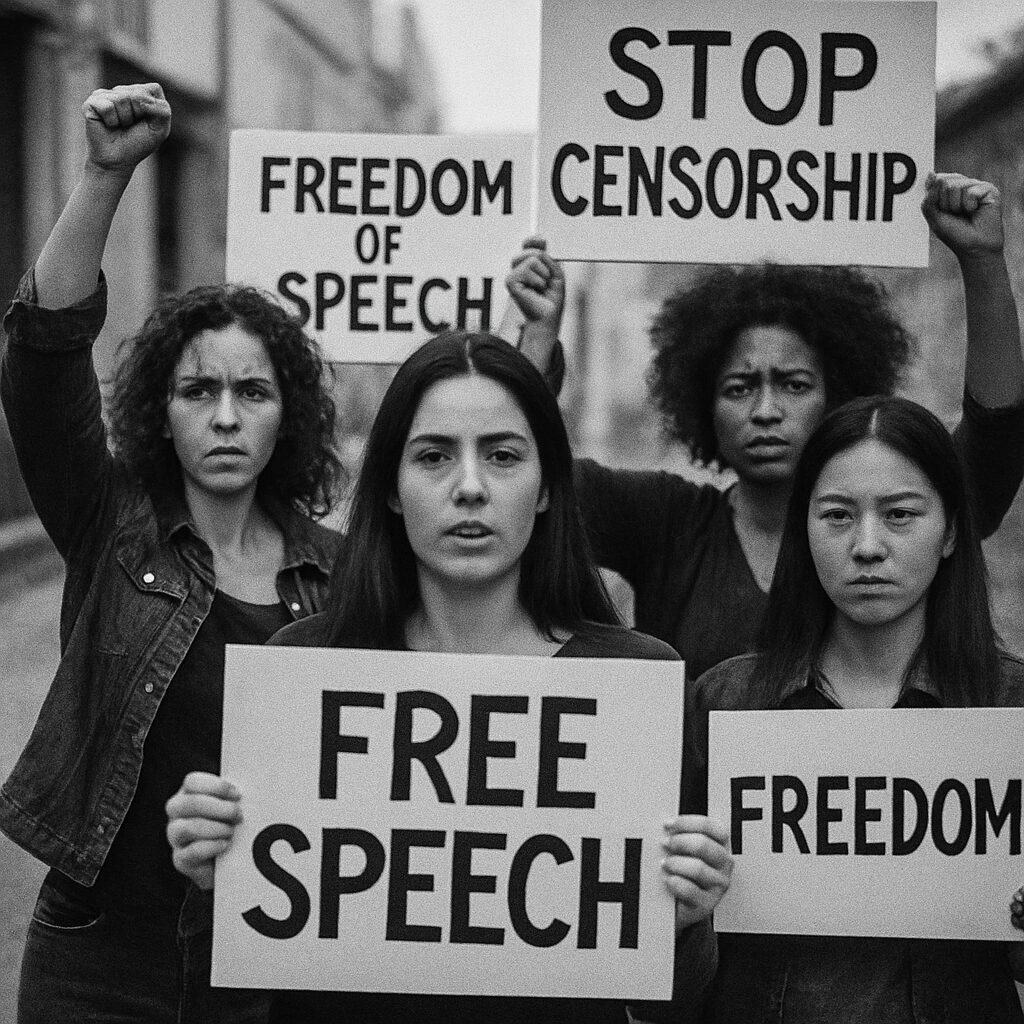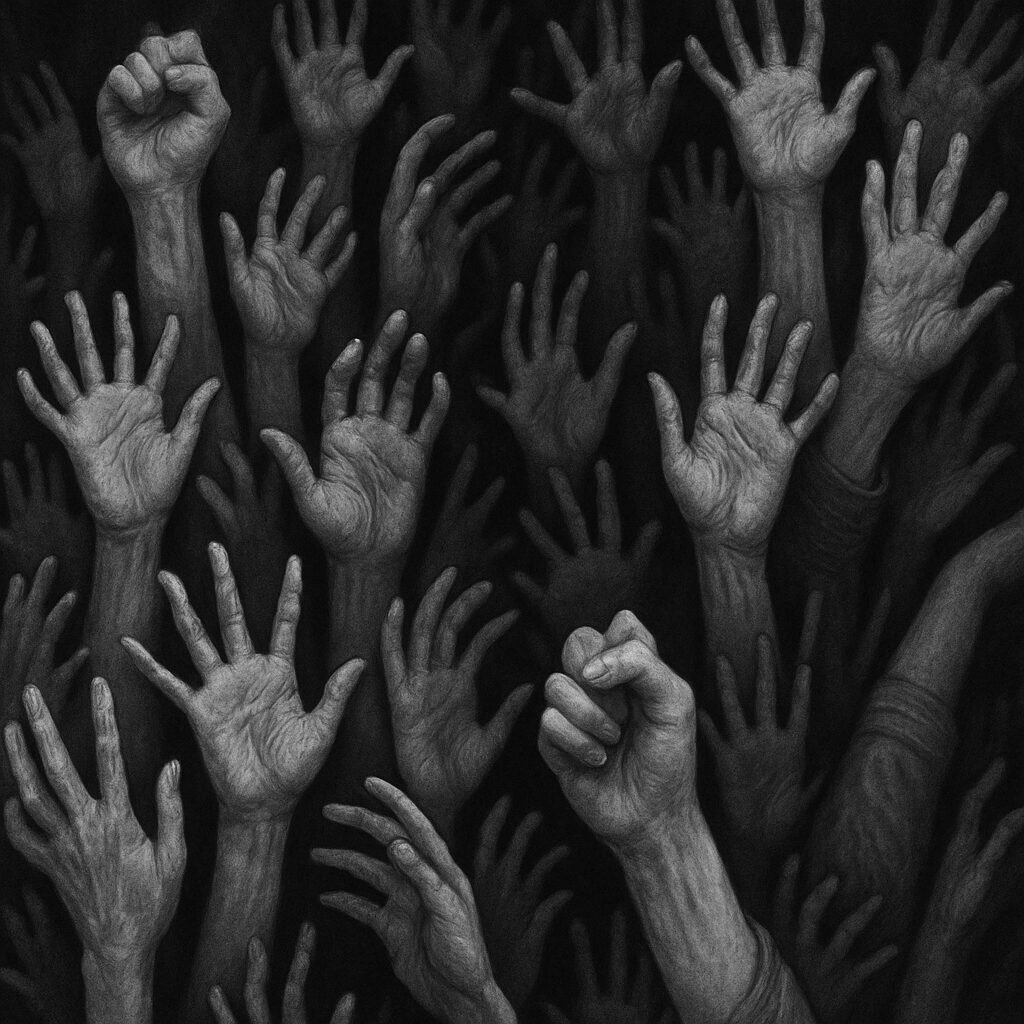Schülerblog: Free Speech – Romina Salarian
Voltaire: «I disapprove of what you say, but I will defend to the death your right to say it.»
«Freedom of speech is a principle that supports the freedom of an individual to articulate their opinions and ideas without fear of retaliation.”
However, what does the term «free speech» mean?
In what situations should free speech be limited?
The Term «free» means to be able to act at will, not under compulsion or restraint. Freedom is often associated with liberty and autonomy. It is the absence of necessity, coercion, or constraint in choice or action. The boldness of execution or conception.
In the context of free speech, «speech» isn’t only used to describe spoken words, but also films, plays, written words, photographs, and paintings. In most cases, it is simply the idea of what is being expressed that determines the meaning. It is also the context of the presentation of our medium that has an impact on how it will be received.
However, if this free speech gets limited, it counts as censorship. Censorship is often described metaphorically as the removal of an individual’s or group’s voice.
In his work On Liberty, English philosopher, political economist and politician, John Stuart Mill, discussed the limits and dangers of free speech, but also positive aspects of it.
He proposed something called the «Harm Principle», which describes how individuals should be free to do whatever they wish up to the point where they cause harm.
He was also known for his famous «No-Platform Technique», which is the practice of refusing someone an opportunity to make their ideas or beliefs known publicly, because you think these beliefs are dangerous or unacceptable.

Freedom of speech is a fundamental human right, as stated in Article 19 of the UDHR. The article states that
Everyone has the right to freedom of opinion and expression; this right includes freedom to hold opinions without interference and to seek, receive and impart information and ideas through any media and regardless of frontiers.
It can also be seen as a safeguard against government tyranny. In times of crisis, the voice of the people should never be silenced. The government often tries to use censorship upon the opposition/ dissenters to convey their own message. Letting the people who are being directly affected by the acts of the government above them is essential, not only to properly inform the rest of the world but also for the people to realize what is going on themselves.
It allows people to vent their thoughts and feelings without the fear of persecution. Moreover, it enables dialogue, builds understanding and helps increase public knowledge.
As previously stated, censorship is used to describe taking away the voice of an individual or group. In most cases, censorship is disadvantageous since it suppresses freedom of expression and hinders access to information, which is essential for a free and informed society.
Yet, censorship can also function as a shield against harmful and hateful speech. The issue arrises when one tries to pinpoint the line between freedom of expression and causing offence. It is impossible to filter all ideas that are likely to anger. However, it is even more problematic to only censor the opinions that one doesn’t agree with. Challenging bigotry by banning it may result in greater harm. It is unclear if its worse to let sentiments fester or to allow them to be aired out/ vented.
Another big aspect of the issue that we predominately have in our current day and age is the internet. The biggest issues to consider are the enormous potential audience size, lack of quality control and anonymity. The potential consequences of dangerous speech in connection to any of the previously listed points are enormous.
Potential positive outcomes might include that antisocial people can find an outlet to their ideas in the internet that doesn’t directly harm anybody. Another point would be that with a big potential audience size, one can start movements and strikes for positive causes more easily than ever.
In conclusion, we can say that free speech is absolutely essential for a free, functioning society but harmful or hateful speech can emerge from it. Attempting to control this would mean condoning censorship. Censorship on the other hand, is not necessarily always a bad thing. Still, it is impossible to set a line between freedom of expression and causing offense.
In my opinion, it is clear that the protection of someone is more important than the freedom expression, as long as one recognizes the importance of free speech in a democracy.

Text von Romina Salarian, 3. Sek Häne